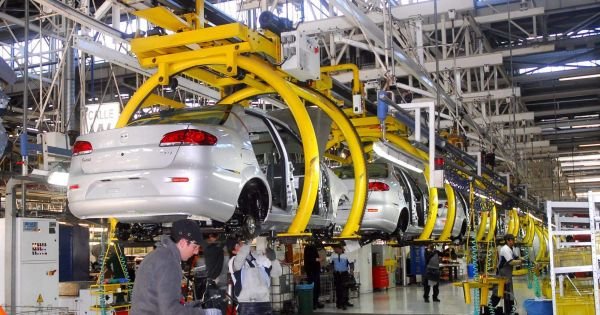Brazilian export sectors concerned with the political and financial situation in Argentina
[ad_1]
Brazilian export sectors concerned with the political and financial situation in Argentina
Auto industry exports from Argentina have not been sufficient to compensate for purchases of Brazilian soybeans
The deteriorating Argentine political and financial situation is already affecting some sectors of the Brazilian economy. Representatives from associations linked to manufactured products reported a decline in exports this year. They expressed concern over potentially worsening shipment figures until December when Argentines will decide on the country’s new president.
Furthermore, potential government measures to curtail the flight of dollars could potentially complicate trade relations between Argentina and Brazil, according to experts from the Getulio Vargas think tank.
A day after the surprising victory of outsider Javier Milei as the most preferred candidate in the Sunday August 13 primaries for October presidential election, the Argentine central bank decided to increase the basic interest rate by 21 points, reaching an annual rate of 118%, and hiked the official dollar exchange rate by 22%, resulting in 350 pesos for the greenback exchange rate.
In the short term, the measures aimed at stemming the outflow of dollars from Argentina might intensify the challenges for Brazilian trade with the country, predicts Lia Valls Pereira, a researcher at FGV IBRE and an expert in foreign exchange.
The economist underscores that Argentina ranks as Brazil’s third-largest trading partner, trailing only China and the United States. In addition to the traditional purchase of manufactured products, Argentina boosted the import of commodities such as soy, (because of the drought), which surpassed the value of Argentine exports of automotive parts and components to Brazil.
Lia notes that the Argentine crisis is likely to reduce exports from Brazil, affecting the performance of the automobile market, for example. Additionally, if Argentina’s soybean supply stabilizes and imports decrease, its contribution to Brazil’s trade surplus will decline.
According to Haroldo Ferreira, CEO of footwear industry Abicalçados, the results of the primary elections caught various economic players off guard, and companies in the footwear industry are anxious about how the Argentine economy will evolve.
Argentina has emerged as the primary destination for some Brazilian exports as the US economy slows but still is importing fewer goods than previously. According to the organization’s data, Brazilian footwear exports to Argentina fell 8.3% between January and July this year compared to last year.
”The sector is uneasy. We’ve already experienced a decline (in exports) in the past month, and we expect more complications ahead. As long as the electoral landscape remains uncertain, the impact of the Argentine crisis remains quite sensitive, and there is a low trading bias,” Ferreira explains.
When asked to comment on the situation, the National Association of Automotive Vehicle Manufacturers (Anfavea) stated, “It does not comment on political issues in Brazil or with its trade partners.”
The Brazilian wheat industry, which is mainly supplied by Argentina, awaits the election results to evaluate potential repercussions on imports. Rubens Barbosa, CEO of Abitrigo, recalls that wheat production in Argentina halved in 2022 due to the historic drought, impacting the activity of Brazilian mills. Nevertheless, the issue was mitigated by procuring alternative suppliers, including the United States, Russia, Uruguay, and Paraguay.
Other industrial sectors, such as automobiles and white goods, have also been significantly affected by the drop in exports to Argentina, Barbosa recalls.
[ad_2]
Source link




